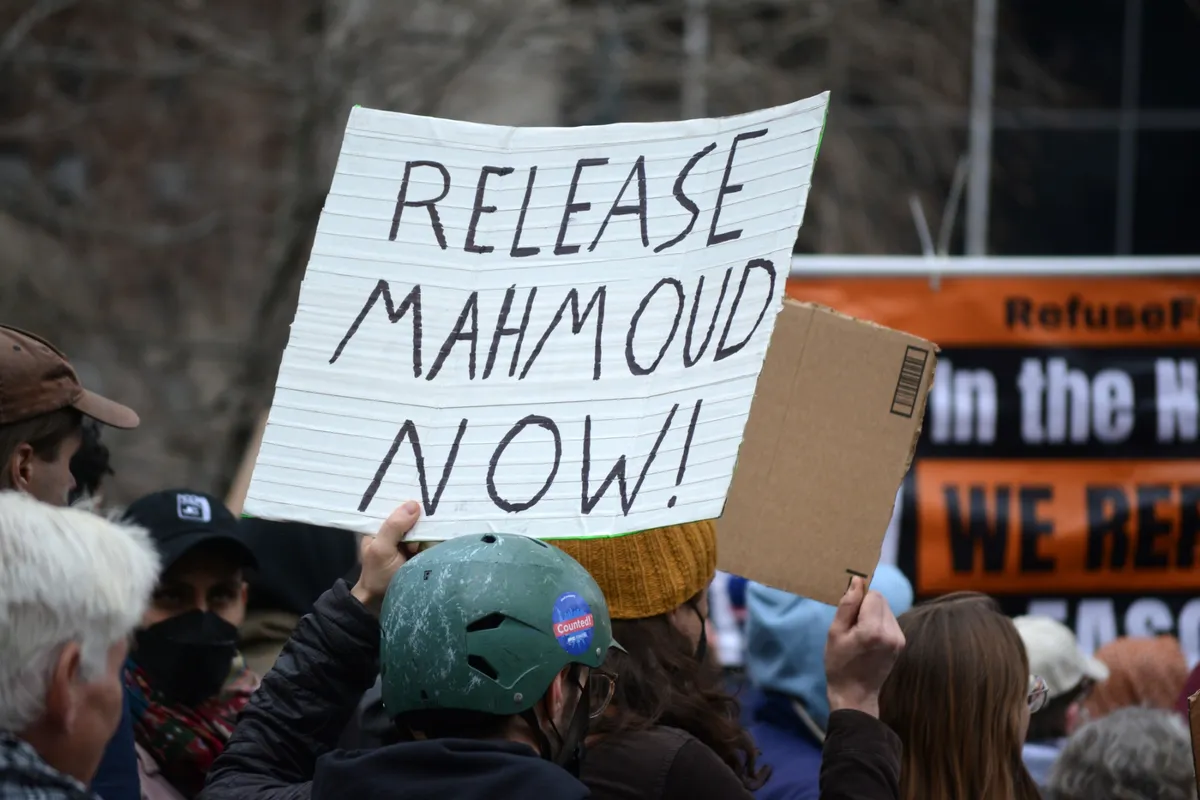The prominent pro-Palestinian activist arrested this month after playing a leading role in New York’s Columbia University protests is on the deportation block — if President Donald Trump has his way, at least.
Mahmoud Khalil was detained by Immigration and Customs Enforcement agents on March 8. According to news reports, he was a well-known face on the city’s campus, helping organize protests against Israel as the country continues its war against Hamas in Gaza.
That war kicked off after Hamas terrorists — the U.S. has considered Hamas a terrorist organization since 1997 — launched an attack nearly two years ago on Israel. The assault resulted in the deaths of more than 1,200 Israelis and more than 200 civilians, including Americans, were taken hostage.
The current death toll for Palestinians during the Gaza war has hit nearly 50,000 as of March.
Trump administration cracks down
President Trump has declared that the arrest of Mahmoud Khalil, a legal permanent resident, marks the “first of many” as his administration intensifies its crackdown on campus protests against the war in Gaza.
However, a federal judge has temporarily halted the 30-year-old’s deportation. In another move just this week, a judge said he should be transported from New York to New Jersey while legal challenges continue.
Khalil, who was a Columbia graduate student until December, was allegedly inside his university-owned apartment when ICE agents entered and took him into custody, his attorney, Amy Greer, told The Associated Press.
Greer said she spoke with an ICE agent by phone during the arrest, who claimed they were following State Department orders to revoke Khalil’s student visa. When she told them that Khalil was a permanent resident with a green card, the agent responded that they would be revoking that instead, according to Greer.
Not so fast
While Khalil’s legal status remains in limbo, prediction platforms like Polymarket suggest he won’t be deported any time soon — arguably due in no small part to a judge ruling that he can’t be deported while the courts consider legal challenges brought by his lawyers.
Prediction market traders forecast merely a 10% chance that Khalil will be deported by July.
Further complicating matters are jurisdictional issues.
As the ACLU notes, Khalil’s lawyers filed a habeas petition in Manhattan federal court, but he is being held in Jena, Louisiana — which is within the jurisdiction of the Fifth Circuit.
The government may argue that New York courts lack jurisdiction over his case because his “immediate custodian” is the ICE facility head in Louisiana. This argument was successful in the 2004 Supreme Court case of Jose Padilla, where a detainee’s petition was dismissed for being filed outside his detention district.
But two key differences could work in Khalil’s favor.
His lawyers could claim they filed the petition before his transfer to Louisiana. If true, this aligns with Supreme Court precedent that prevents the government from defeating jurisdiction by moving a detainee after filing.
In addition, as noted by Steve Vladeck, the Padilla ruling left open the question of whether the Attorney General — who can be sued in any district — could be the proper respondent in immigration cases. Vladeck says that if courts accept this argument, Khalil’s case could remain in New York regardless of his transfer.
In a similar, but not related case, immigration agents detained a Georgetown University researcher after revoking his visa, sparking another major legal battle over deportation proceedings for foreign-born visa holders authorized to live in the U.S.
Badar Khan Suri, an Indian citizen and postdoctoral scholar at Georgetown, was arrested outside his Virginia home Monday night by Department of Homeland Security agents, according to his attorney, Hassan Ahmad.
Ahmad argues that Suri was targeted because his wife, Palestinian American Mapheze Saleh, has been doxxed and accused online due to her background, former work with Al Jazeera, and birthplace in Gaza City.

























